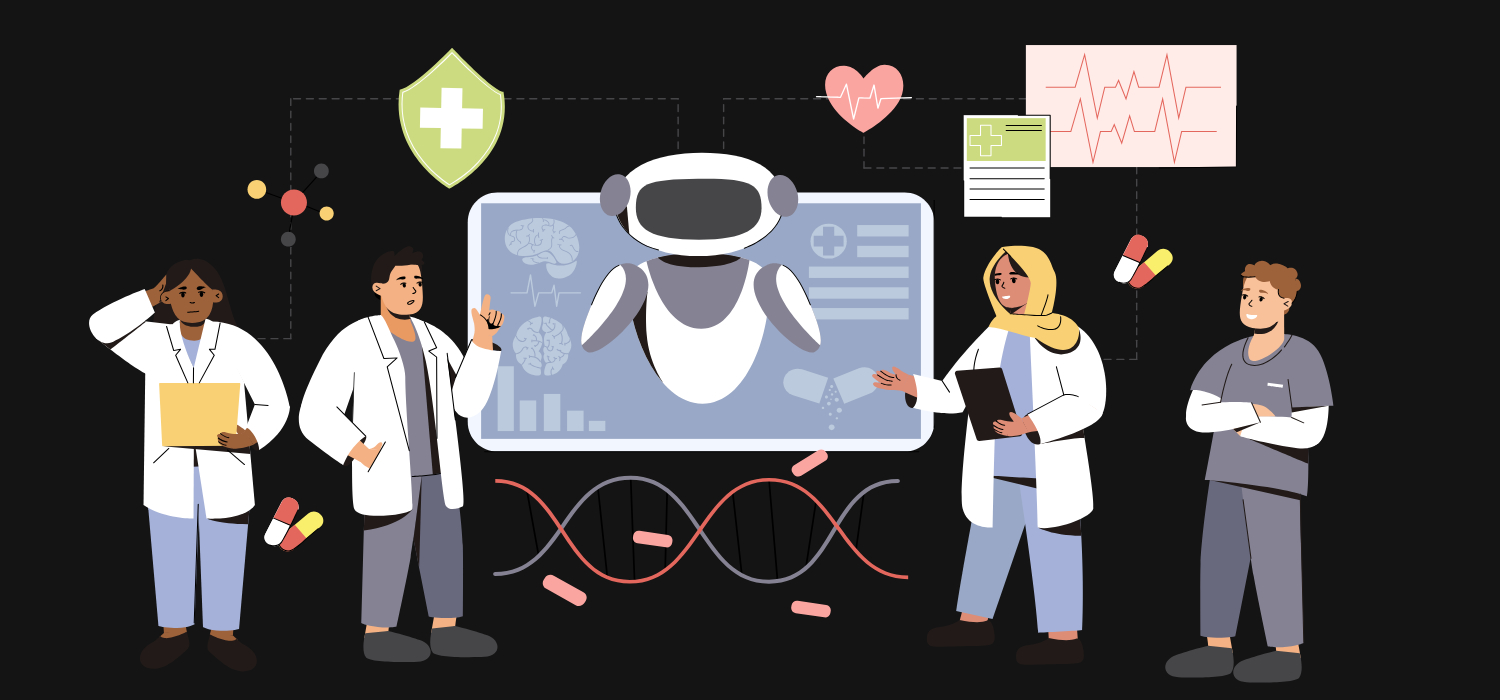7 Ways to Utilize RPA to Enhance Healthcare Efficiency
Daily, healthcare providers work manually to enter patient’s logs and data. These billing and paper-based tasks are tedious and can even cause errors while updating. Tasks such as delegating medical professionals, collecting patient data, providing prescriptions, and much more cause delays while being done manually. On the other hand, these tasks are time-consuming as well as tedious which can cause delays in the results. However, while doing this manually you need to make sure to avoid errors while making any changes. As the world is going towards adopting more healthcare services, the professionals in healthcare sectors don’t have much time to make changes or fill in data manually. Here, RPA (Robotic Process Automation) comes into the picture to handle the tasks automatically.
In this blog, we will explore major ways to use RPA to enhance healthcare efficiency.
Role of RPA in Healthcare Sector
Implementing RPA in healthcare helps automate tasks and processes with varying complexity. If we see this in terms of patient interactions, scheduling appointments, making reminders, patient registrations, monitoring of post-admission, and discharge as well as billing. In terms of the administrative level, the processes can be automated inducing insurance management, and claim invoice processing, together with revenue cycle, monitoring, and payroll organization.
7 Ways to Use RPA in the Healthcare Industry
-
Automating Appointment Scheduling and Patient Registration
By automating data entry, verification, and appointment reminders, RPA can expedite the patient registration and appointment scheduling processes. Bots are capable of effortlessly scheduling appointments, confirming insurance eligibility, and extracting patient data from electronic health records (EHRs). Healthcare practitioners can decrease errors, remove manual labor, and increase patient satisfaction by automating key administrative work.
-
Accelerating Claims Processing and Billing
In healthcare revenue cycle management (RCM), billing and claims processing are essential tasks, but they frequently need manual data entry and processing, which can cause delays and mistakes. The complete claims processing cycle, including data extraction, validation, submission, and reconciliation, can be automated with RPA. Healthcare firms can increase cash flow, decrease denials, and speed up reimbursement cycles by automating these tasks.
-
Enhancing Electronic Health Record (EHR) Management
Healthcare practitioners must manage electronic health records (EHRs), but doing so can be labor-intensive and error-prone. To keep EHRs accurate, current, and consistent with regulations, RPA can automate processes like data entry, updating patient information, and producing reports. Healthcare companies may boost patient safety, productivity, and data quality by automating these processes.
-
Improving Medication Management and Prescription Processing
A crucial part of patient care is medication management, but it may be difficult and prone to mistakes, especially when it comes to processing prescriptions and reconciling medications. Refill requests, medication reconciliation, and prescription verification are just a few of the processes that RPA can automate to save mistakes and enhance patient safety. Healthcare professionals may guarantee that patients receive the appropriate prescriptions at the appropriate time by automating these procedures, which will improve patient outcomes.
-
Streamlining Laboratory and Diagnostic Testing Processes
Processing samples, interpreting test results, and reporting are only a few of the manual duties involved in laboratory and diagnostic testing procedures. By autonomously processing samples, creating reports, and collecting data from test requisitions, RPA may automate these operations. Healthcare companies may decrease turnaround times, increase accuracy, and boost production in lab and diagnostic testing facilities by automating these processes.
-
Facilitating Revenue Cycle Management (RCM) Optimization
Healthcare businesses‘ financial stability depends on revenue cycle management (RCM), although RCM can be difficult and labor-intensive. By automating activities like coding, billing, and payment posting, RPA helps improve RCM operations. Healthcare providers can increase overall financial performance, decrease billing errors, and speed up revenue collection by automating these operations.
-
Ensuring Regulatory Compliance and Data Security
Healthcare companies place a high premium on adhering to legal standards like GDPR (General Data Protection Regulation) and HIPAA (Health Insurance Portability and Accountability Act). By automating data security procedures, audit trail creation, and compliance monitoring, RPA can contribute to compliance. Healthcare providers can lower their risk of noncompliance, safeguard patient information, and uphold their credibility and confidence with patients and regulatory bodies by automating these tasks.
Conclusion
Healthcare providers may increase operational efficiency, improve patient care, and maintain regulatory compliance with the use of robotic process automation (RPA). Healthcare businesses can realize considerable cost savings, enhance productivity, and improve patient outcomes by utilizing robotic process automation (RPA) to automate administrative activities, streamline workflows, and optimize revenue cycle management. RPA will become more and more important as the healthcare sector develops, propelling innovation and change in every facet of healthcare administration and delivery.

 contact
contact

 By
By 


